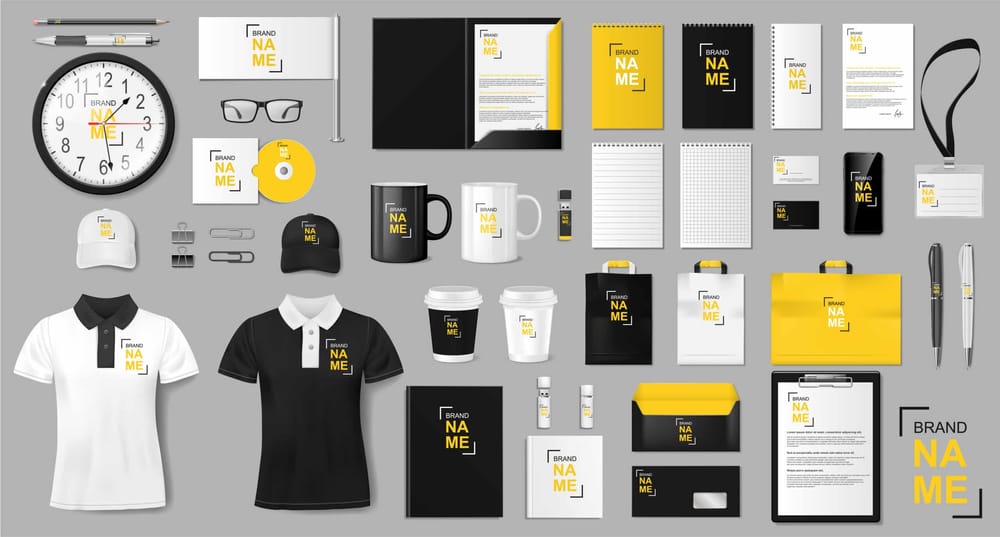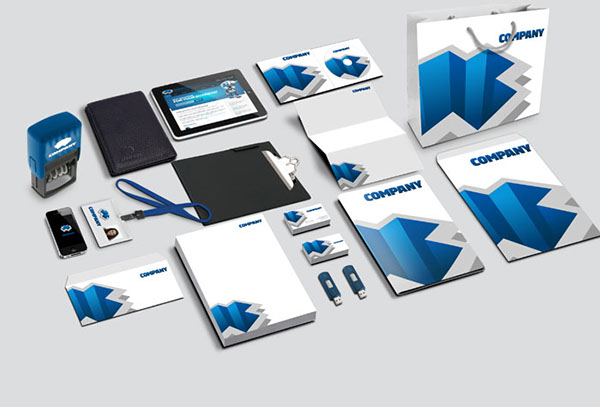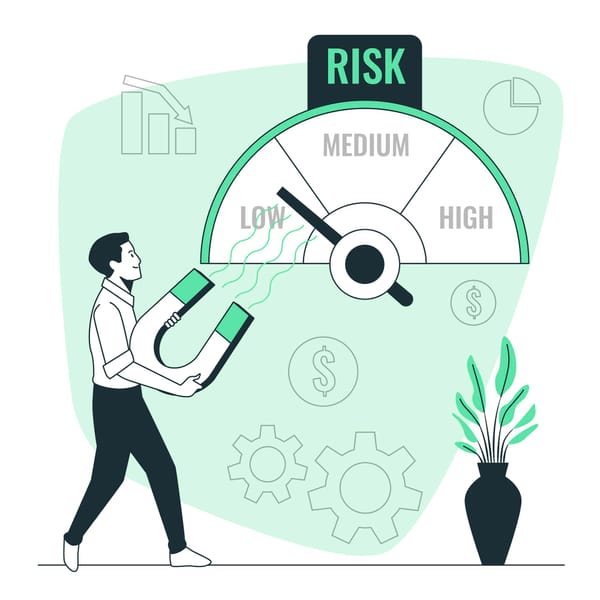Marketing Materials
Marketing material for business development specifically focuses on promoting a company's products, services, or capabilities to potential business partners, clients, or stakeholders with the goal of initiating or enhancing business relationships. The primary purpose of these materials is to generate interest, establish credibility, and facilitate collaboration or partnership opportunities. Here are key types of marketing materials commonly used for business development:
// Proposal:
In marketing, a proposal refers to a formal document or presentation that outlines a specific offer, solution, or strategy tailored to meet the needs of a potential client or customer. Marketing proposals are designed to persuade and convince the recipient to engage with a product, service, or partnership. They are crucial for business development, sales, and client acquisition.
A carefully considered and well-designed proposal explains your strategy, solutions and how they meet the client’s goals (basically, everything you need to win them over). A winning marketing proposal should be:
- Comprehensive
- Creative
- Data driven
- Realistic
- Customized
- Clear and concise
Now that you have an understanding of what a marketing proposal is and what it should have.
// Rate list:
A "rate list" or "price list" of marketing materials for business development typically refers to a catalog or inventory of various promotional items and resources that can be utilized to support business growth and marketing initiatives. These marketing materials are essential tools for communicating messages, building brand awareness, and engaging with potential clients or customers.Here are common types of marketing materials often included in a rate list for business development purposes:
// Quotation:
A "quotation" of marketing materials for business development typically refers to the estimated costs or pricing associated with acquiring or producing various marketing materials aimed at supporting business growth and development initiatives. When preparing a quotation for marketing materials in the context of business development, consider the following key elements:
Key elements to include:
- Itemized List of Marketing Materials
- Description and Specifications
- Unit Prices
- Total Cost Breakdown
- Additional Costs
- Discounts or Promotions
- Validity Period
- Optional Add-ons or Alternatives
When preparing a quotation for marketing materials, it's important to be transparent, accurate, and responsive to the client's needs. Tailor the quotation to align with the client's budget, preferences, and business objectives. Ensure that all details are clearly communicated and that the quotation is presented professionally to enhance credibility and trust with the client.
// Testimonials:
Testimonials for marketing materials in the context of business development refer to statements or endorsements from satisfied clients or customers that are used to promote and validate your products or services. Testimonials are a powerful form of social proof that can build trust, credibility, and confidence in your business among potential clients. When incorporating testimonials into your marketing materials for business development, consider the following aspects:
Key element to include:
- Authenticity and Relevance
- Diverse Perspectives
- Specific Results or Benefits
- Attribution and Credibility
- Visual Presentation
- Placement and Integration
- Consent and Permission
- Regular Updates
By leveraging testimonials effectively in your marketing materials for business development, you can build credibility, inspire confidence, and encourage potential clients to engage with your business. Testimonials provide real-world evidence of your value proposition and can significantly influence purchase decisions. Regularly collect and showcase testimonials to reinforce your brand's reputation and attract new business opportunities.
// Stamp:
A stamp typically refers to a visual element or graphic that is used to enhance the professionalism, credibility, and branding of the materials. Stamps can be both physical (printed) or digital (added digitally to electronic documents or designs). Here are several ways stamps can be used effectively in marketing materials for business development:
- Company Logo Stamp
- Certification or Approval Stamp
- Confidentiality Stamp
- Quality Assurance Stamp
- Digital Signature Stamp
- Customized Design Elements
By incorporating stamps thoughtfully into marketing materials for business development, you can elevate their visual appeal, communicate important information, and leave a memorable impression on clients and prospects.
// Agreement:
An agreement for marketing materials in the context of business development refers to a formal document that outlines the terms and conditions between parties involved in the creation, distribution, or use of marketing materials to support business growth and development initiatives. This agreement helps clarify expectations, responsibilities, and rights related to the marketing materials. Here are key components typically included in an agreement for marketing materials for business development:
Key element to include:
- Parties Involved
- Scope of Work
- Project Objectives
- Roles and Responsibilities
- Timeline and Deliverables
- Intellectual Property Rights
- Confidentiality and Non-Disclosure
- Quality Standards
- Approval Process
- Governing Law
An agreement for marketing materials is essential for establishing clear expectations and protecting the interests of all parties involved in business development initiatives. It ensures transparency, professionalism, and adherence to contractual obligations throughout the project lifecycle. Consult legal professionals or advisors to draft and review the agreement to ensure compliance with relevant laws and industry standards.
// Testimonial Request Form:
A Testimonial Request Form for marketing materials in business development is a structured document used to collect feedback and testimonials from satisfied clients or customers. These testimonials are valuable social proof that can be incorporated into various marketing materials to enhance credibility, build trust, and attract new business opportunities. Below are key elements typically included in a Testimonial Request Form:
Key element to include:
- Client Information
- Project or Service Details
- Testimonial Content
- Consent and Release
- Optional Information
- Signature and Date
- Formatting and Design
- Submission Instructions
Collecting and utilizing testimonials effectively can significantly enhance the effectiveness of your marketing materials for business development, ultimately contributing to increased brand awareness and revenue growth. Be sure to follow up with clients promptly after project completion to request testimonials while their positive experience is still fresh in their minds.
// Letterhead:
A letterhead for marketing materials in business development refers to a customized header or design element that is used on official correspondence, proposals, reports, and other business documents. A well-designed letterhead plays a crucial role in branding and can enhance the professional appearance of your marketing materials. Here's what you need to know about creating an effective letterhead for business development:
Key elements to include:
- Company Logo
- Company Name and Tagline
- Contact Information
- Design Elements
- Professional Fonts
- Whitespace
By incorporating a well-designed letterhead into your marketing materials for business development, you can elevate the overall presentation, strengthen brand identity, and make a positive impression on clients and prospects. Take the time to create a letterhead that aligns with your brand's values and messaging, and use it consistently across all your communication channels for maximum impact.
// Daily Visit Form:
A "Daily Visit Form" for marketing materials in the context of business development is a structured document used by sales or business development professionals to record and track their daily visits or interactions with potential clients, prospects, or partners. This form helps in documenting key details and insights gathered during these visits, which can be valuable for follow-up activities and nurturing relationships. Here are key elements typically included in a Daily Visit Form for business development:
Key elements to include
- Date and Time
- Visitor Information
- Purpose of Visit
- Key Discussion Points
- Action Items
- Feedback and Observations
- Marketing Materials Provided
- Follow-Up Plan
- Additional Notes
By implementing a Daily Visit Form as part of your business development process, you can enhance productivity, optimize client engagement, and maximize opportunities for business growth. Customize the form to align with your specific industry, target audience, and business objectives, and encourage consistent use among team members to capture valuable insights from client interactions.
// Monthly Planner:
A "Monthly Planner" for marketing materials in business development refers to a structured calendar or schedule used by marketing professionals to plan and coordinate activities, campaigns, and initiatives on a monthly basis. This planner helps ensure strategic alignment, efficient resource allocation, and timely execution of marketing efforts aimed at supporting business growth and development. Here are key elements typically included in a Monthly Planner for business development:
Key element to include:
- Monthly Overview
- Campaign Schedule
- Content Calendar
- Events and Meetings
- Marketing Collateral Production
- Budget Allocation
- Lead Generation and Follow-Up
- Client Engagement Activities
- Performance Tracking
- Collaboration and Coordination
Implementing a Monthly Planner for marketing materials in business development is essential for driving consistent and targeted marketing efforts that contribute to business growth and client acquisition. Customize the planner to suit your specific industry, market dynamics, and business objectives, and use it as a central tool for strategic planning and execution. Regularly review and update the planner to adapt to changing market conditions and optimize marketing performance over time.
// Survey Form:
A "Survey Form" for marketing materials in business development refers to a structured questionnaire used to gather feedback, opinions, preferences, and insights from target audiences or customers. Surveys are valuable tools for conducting market research, understanding customer needs, validating business ideas, and optimizing marketing strategies. When designing a survey form for business development purposes, consider the following key elements:
Key element to include:
- Purpose and Objectives
- Target Audience
- Survey Questions
- Response Options
- Layout and Design
- Introduction and Instructions
- Confidentiality and Anonymity
- Contact Information
- Distribution and Data Collection
- Data Analysis and Reporting
By developing and administering a well-crafted survey form for business development, you can gain valuable insights into customer preferences, market trends, and competitive landscape. Use survey data to refine marketing strategies, optimize product offerings, and strengthen customer relationships, ultimately driving business growth and success. Regularly evaluate and iterate on survey methods to capture evolving market dynamics and stay responsive to customer needs.
// Diary:
A "Diary Form" for marketing materials in business development is a structured document used to record and track daily activities, tasks, observations, and interactions related to business development efforts. This diary serves as a centralized tool for documenting key information and maintaining a detailed record of activities aimed at promoting business growth and client acquisition. Here's how you can create and use a diary form effectively for business development:
Key elements to include:
- Day and Time
- Activity Details
- Objectives and Goals
- Key Contacts and Interactions
- Follow-Up Actions
- Challenges and Opportunities
- Marketing Materials Used
- Reflection and Evaluation
A diary form for business development serves as a valuable tool for maintaining focus, staying organized, and documenting progress towards achieving business growth objectives. Customize the diary form to suit your specific industry, target audience, and business goals, and use it consistently as part of your daily business development routine. Regularly review and analyze diary entries to leverage insights for optimizing marketing strategies, nurturing client relationships, and driving sustainable business growth.
// Company Registration:
"Company Registration" in the context of marketing materials for business development refers to the process of formally registering a business entity with the relevant government authorities or regulatory bodies. This registration is essential for establishing the legal existence of a company and obtaining necessary licenses and permits to operate legally within a specific jurisdiction. While not directly related to marketing materials themselves, company registration plays a crucial role in enabling business development activities and shaping the overall brand identity and credibility of the company. Here's how company registration relates to business development and marketing:
- Legal Entity Establishment:
Registering a company establishes it as a legal entity separate from its owners. This provides a foundation for conducting business, entering into contracts, and engaging in commercial activities
- Protection of Intellectual Property:
Registering trademarks, copyrights, or patents associated with the company's products or services enhances intellectual property protection, which is important for marketing and brand management.
- Investor Confidence:
For businesses seeking external funding or investment, company registration signals professionalism and seriousness, increasing investor confidence and interest in supporting business development initiatives.
- Expansion and Growth Opportunities:
A registered company is better positioned to explore expansion opportunities, enter new markets, and pursue growth strategies through strategic partnerships, acquisitions, or franchising.
- Access to Business Opportunities:
Registered companies may have better access to business opportunities, partnerships, and contracts, particularly when dealing with government agencies, larger corporations, or international markets.
// Vat / Ward Registration:
"VAT/Ward Registration" in the context of business development refers to the process of registering for Value Added Tax (VAT) and obtaining a Ward Registration, which are important requirements for businesses operating in certain jurisdictions. While not directly related to creating marketing materials, VAT and Ward Registration play a significant role in the overall business operations and compliance, which in turn impacts business development activities. Here's an overview of VAT/Ward Registration and its relevance to business development:
1. Value Added Tax (VAT) Registration:
- VAT registration is mandatory for businesses that meet certain turnover thresholds or engage in taxable activities as defined by local tax authorities. VAT is a consumption tax levied on the value added at each stage of production or distribution of goods and services.
- Impact on Business Development: VAT registration allows businesses to issue VAT invoices, claim input VAT credits, and comply with tax regulations. This enhances transparency and credibility in financial transactions, which can positively influence business development efforts.
2. Ward Registration:
- Ward Registration typically refers to registering with the local municipality or administrative district (ward) where a business is located. This registration is important for compliance with local government regulations and obtaining necessary permits and licenses.
- Impact on Business Development: Ward registration ensures that businesses operate legally within their designated areas and adhere to local zoning, health, safety, and environmental regulations. This facilitates smooth business operations and minimizes risks related to non-compliance.
In summary, VAT/Ward registration is a fundamental aspect of business compliance and operational readiness, which indirectly influences business development activities. While not a marketing material itself, proper registration enables businesses to build a solid foundation for sustainable growth, brand reputation, and market competitiveness.
// Id Cards:
Using ID cards as marketing materials for business development can be a creative and strategic way to promote brand identity, enhance professionalism, and foster engagement with clients, employees, and stakeholders. While ID cards primarily serve as identification badges, they can also play a role in supporting business development efforts by incorporating branding elements and messaging.
In summary, leveraging ID cards as marketing materials for business development goes beyond mere identification. By integrating branding, messaging, and strategic elements into ID card design and distribution, businesses can leverage this everyday item to enhance brand visibility, strengthen client relationships, and drive business growth. Be creative and intentional in using ID cards as part of your marketing strategy to maximize their impact on business development efforts.
// Visiting Cards:
Using visiting cards (also known as business cards) effectively as marketing materials for business development can significantly enhance networking, brand awareness, and client engagement. Visiting cards serve as portable and tangible representations of your brand and contact information, making them valuable tools for making memorable impressions and initiating business connections.
// Envelope:
Using envelopes as part of your marketing materials for business development can be an effective way to enhance brand visibility, professionalism, and engagement with clients and prospects. While envelopes primarily serve the practical purpose of enclosing and delivering documents, they also present opportunities to make a positive impression and reinforce your brand identity.
// Folders and Presentation Materials:
Presentation folders and materials are used to organize and present documents, proposals, or marketing collateral in a professional and organized manner during meetings or client presentations.




